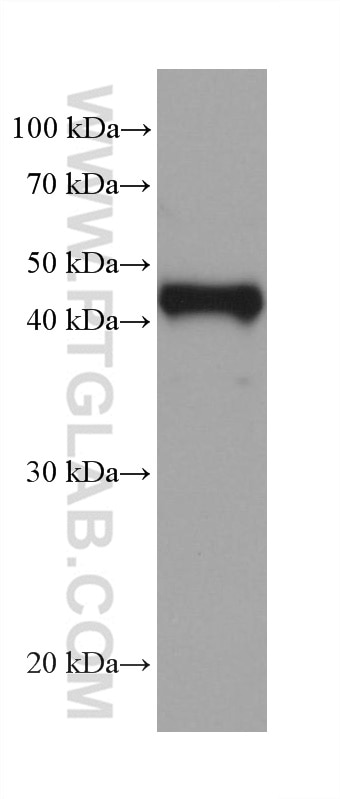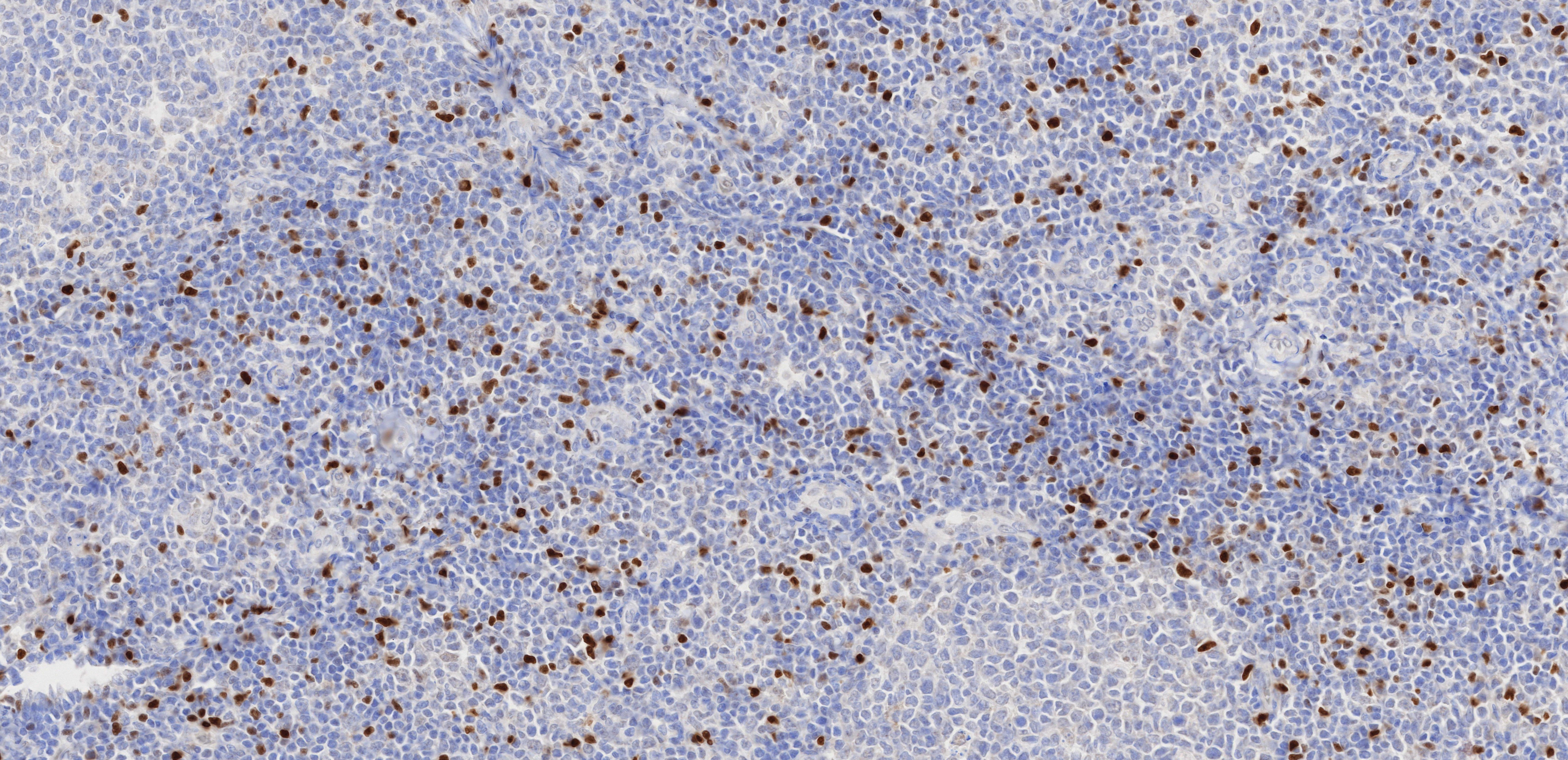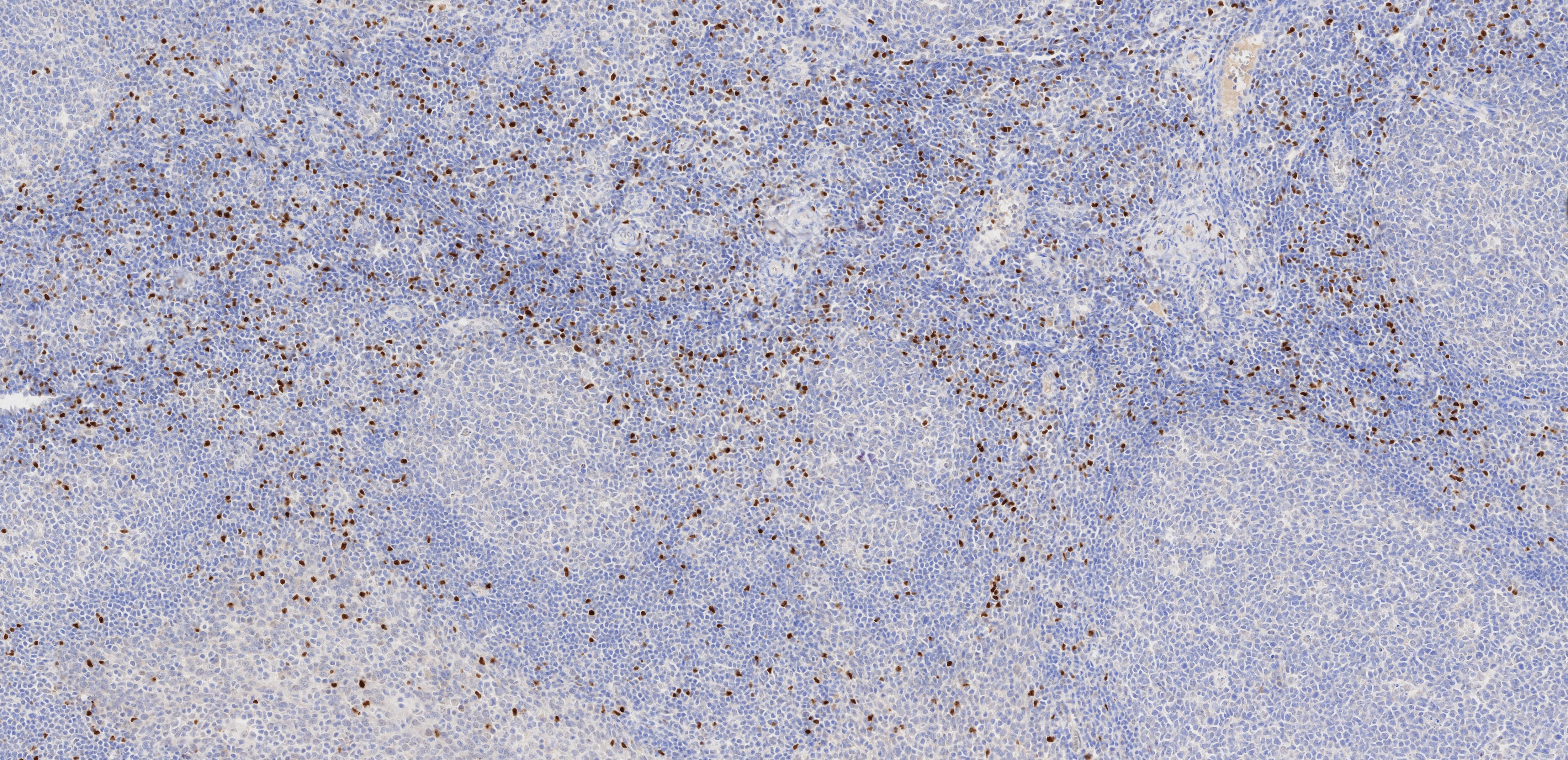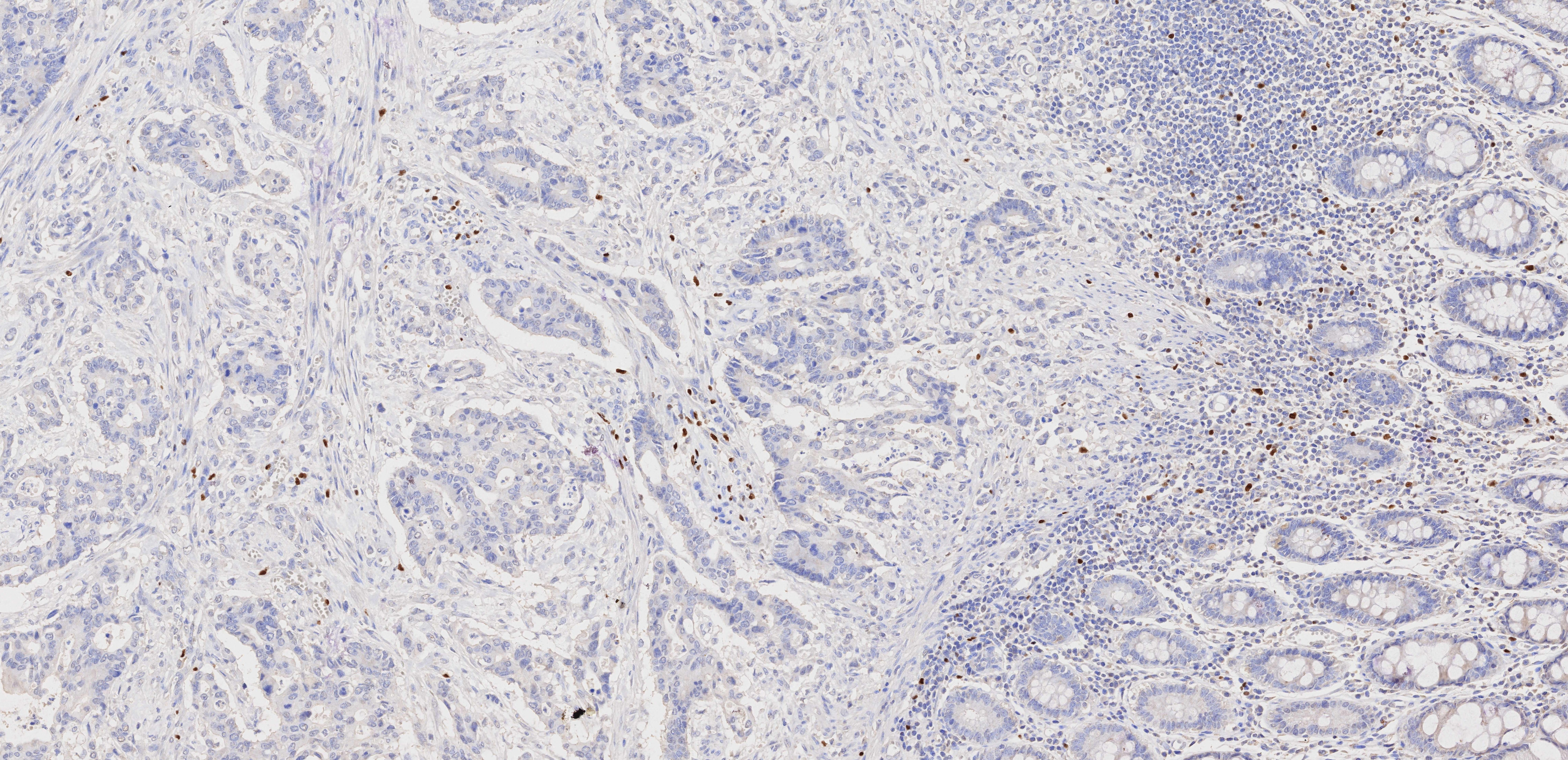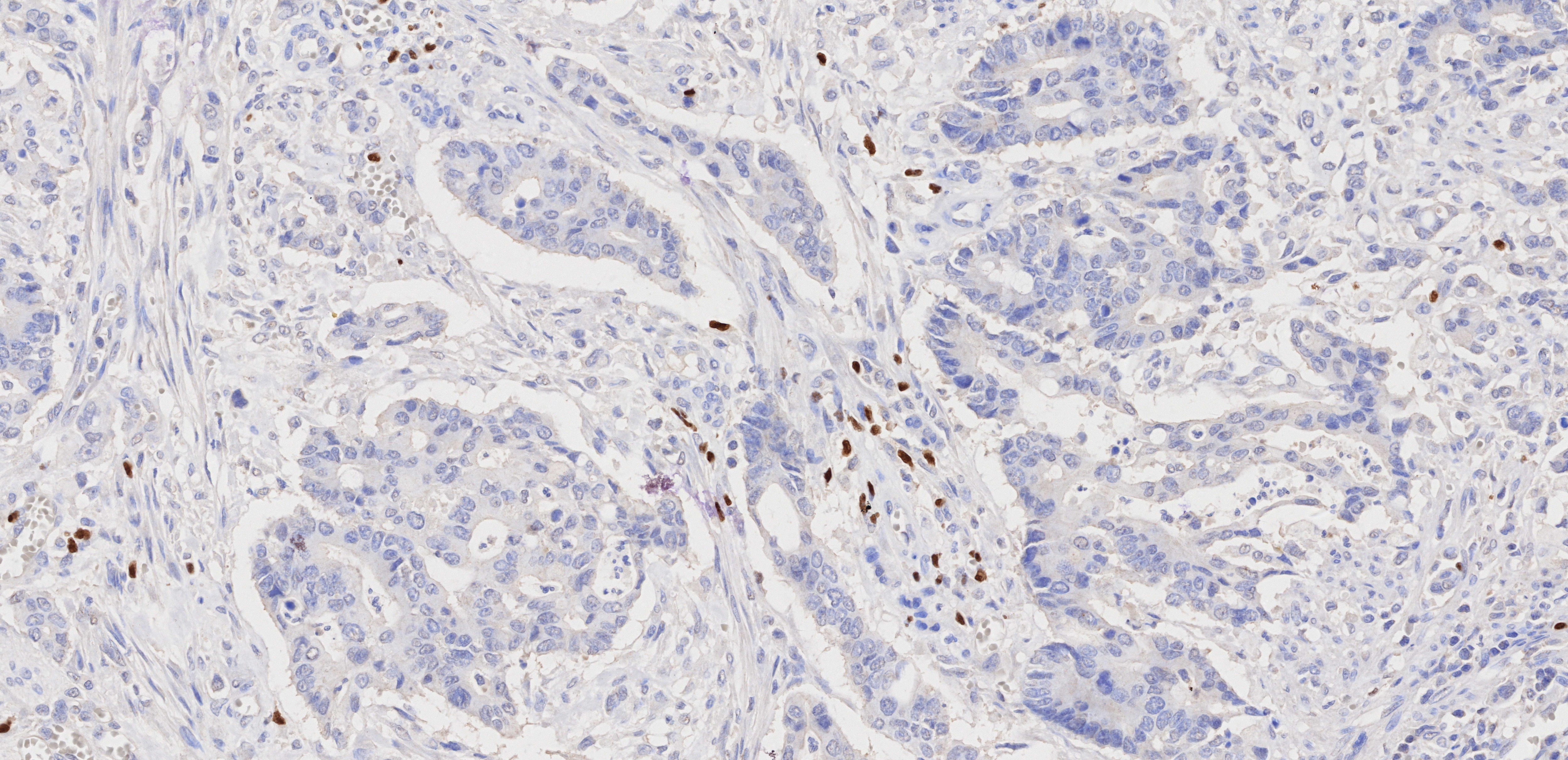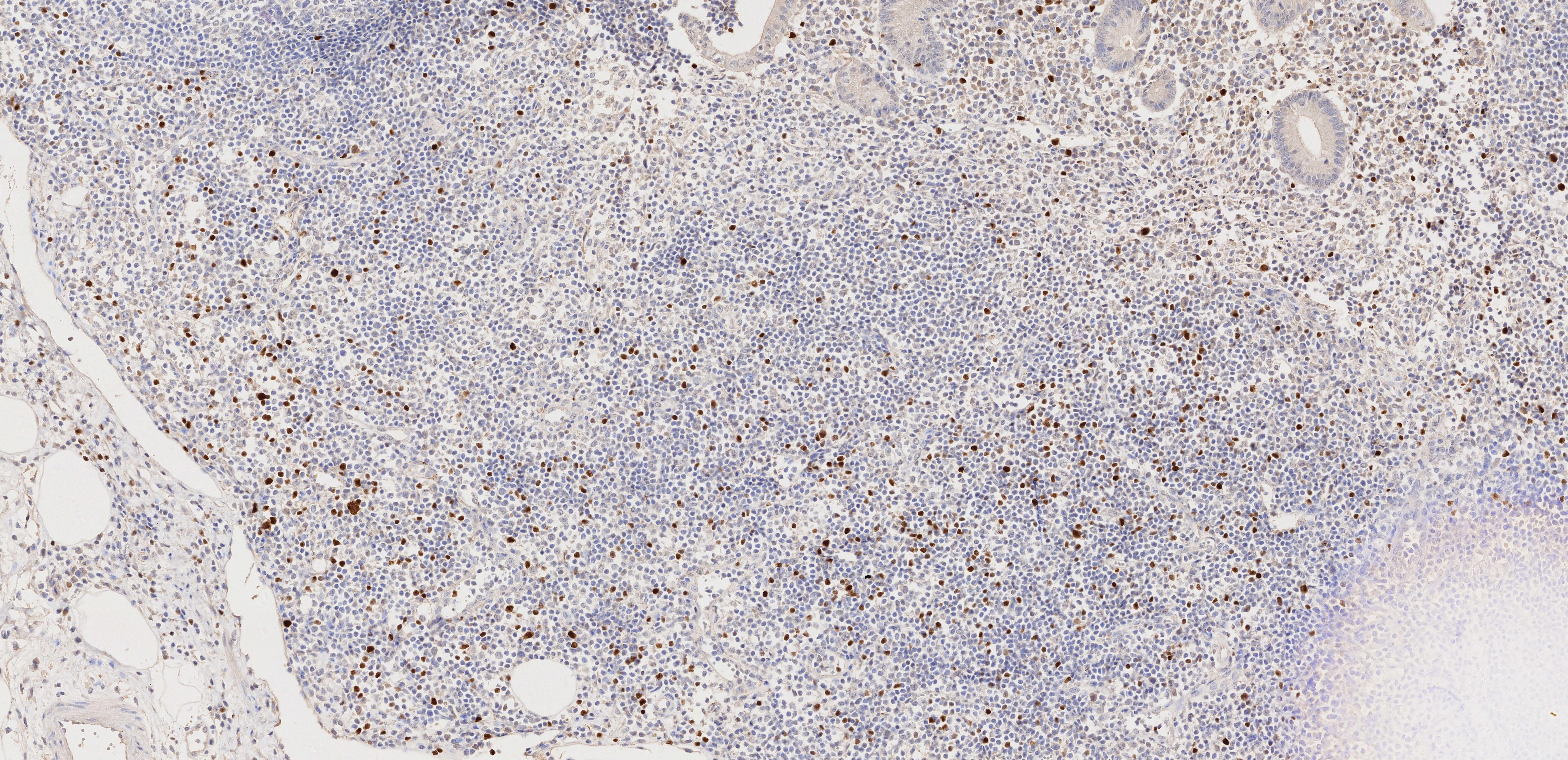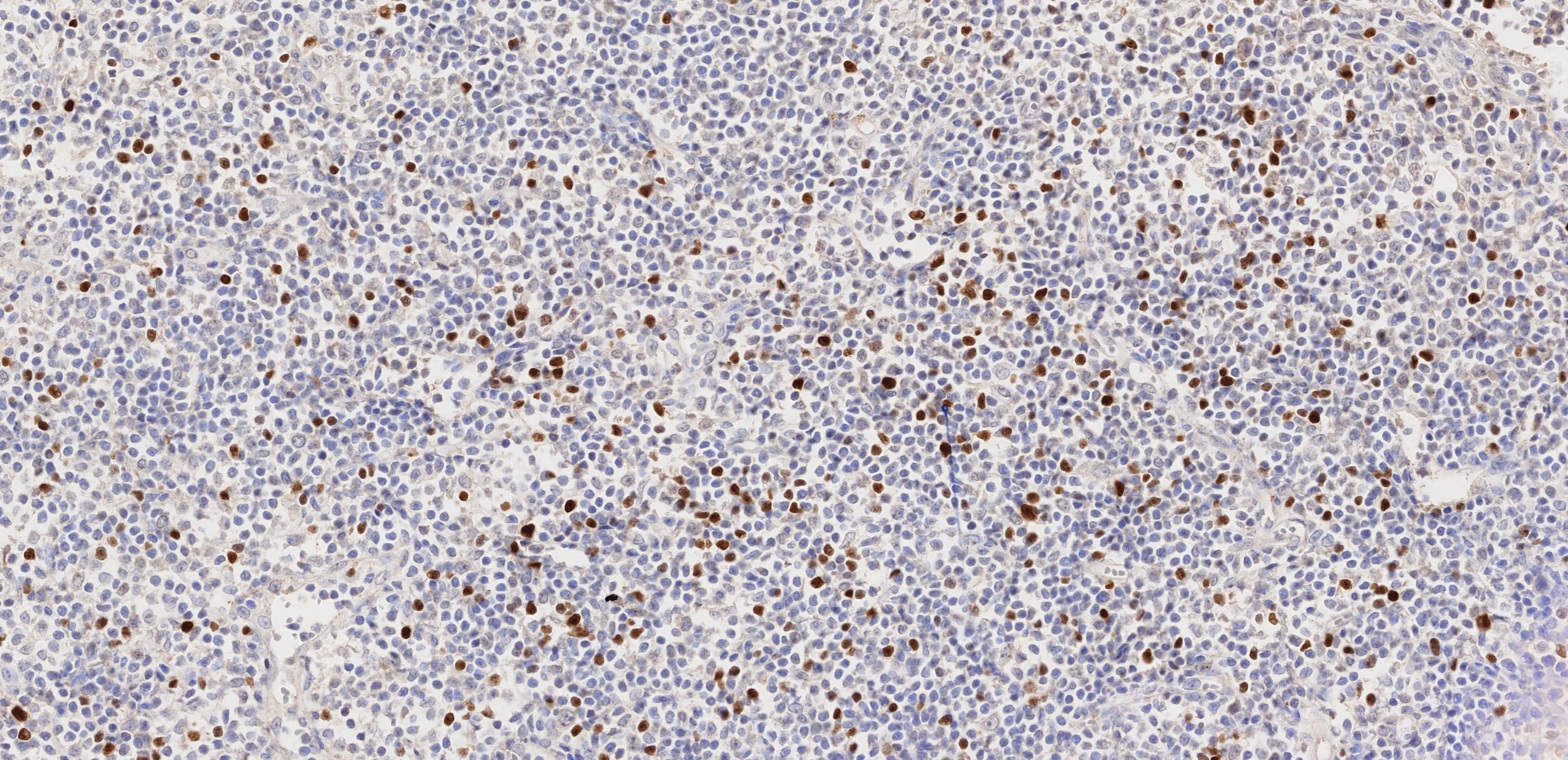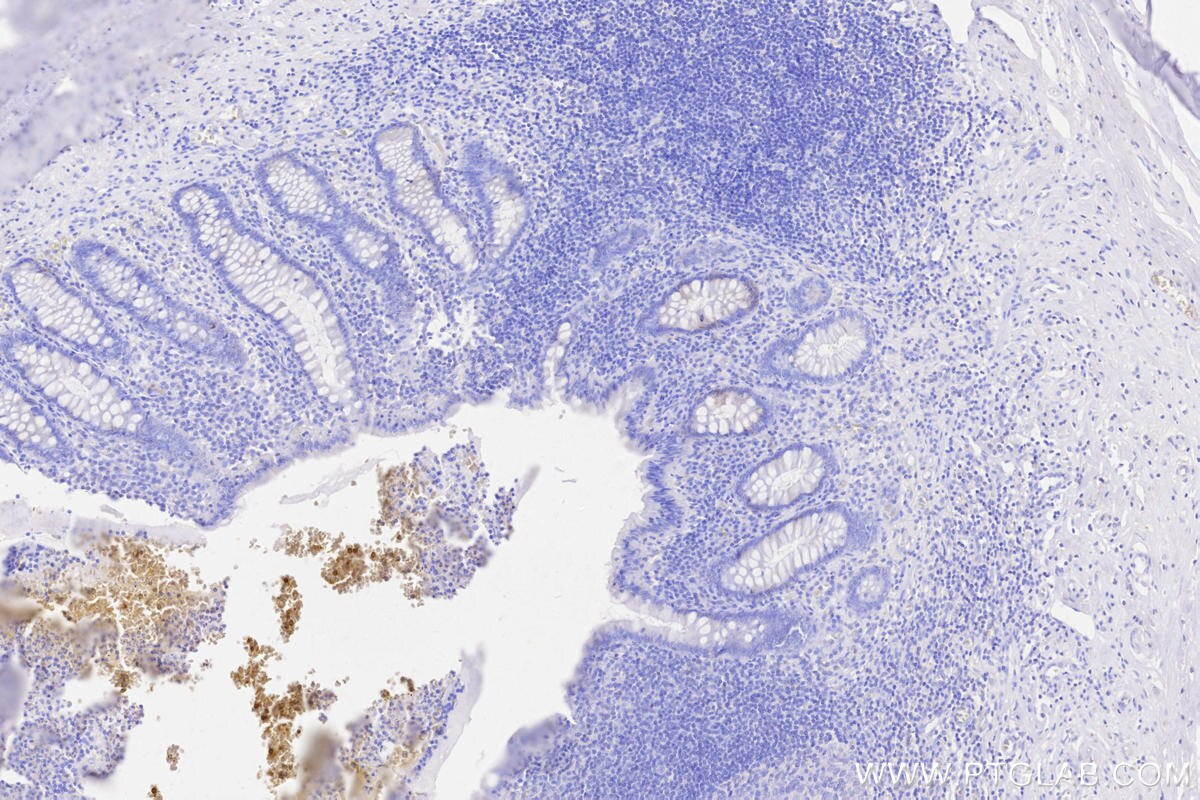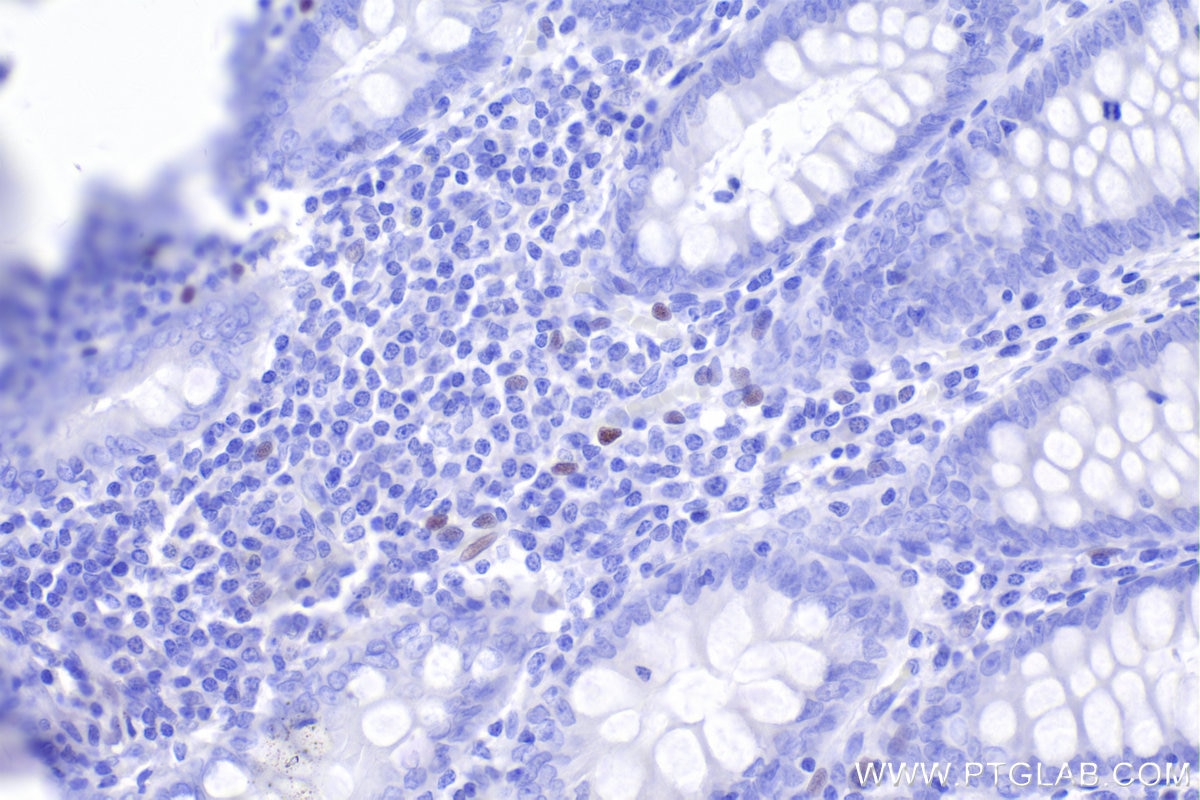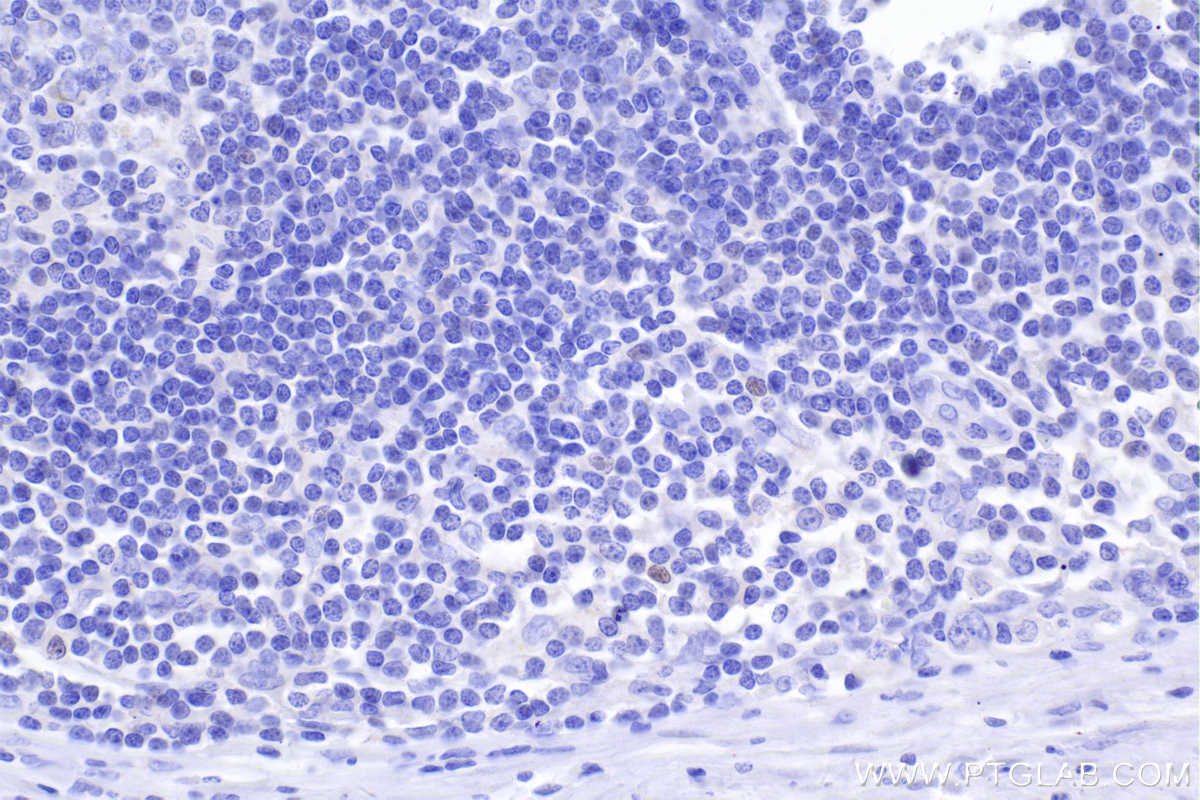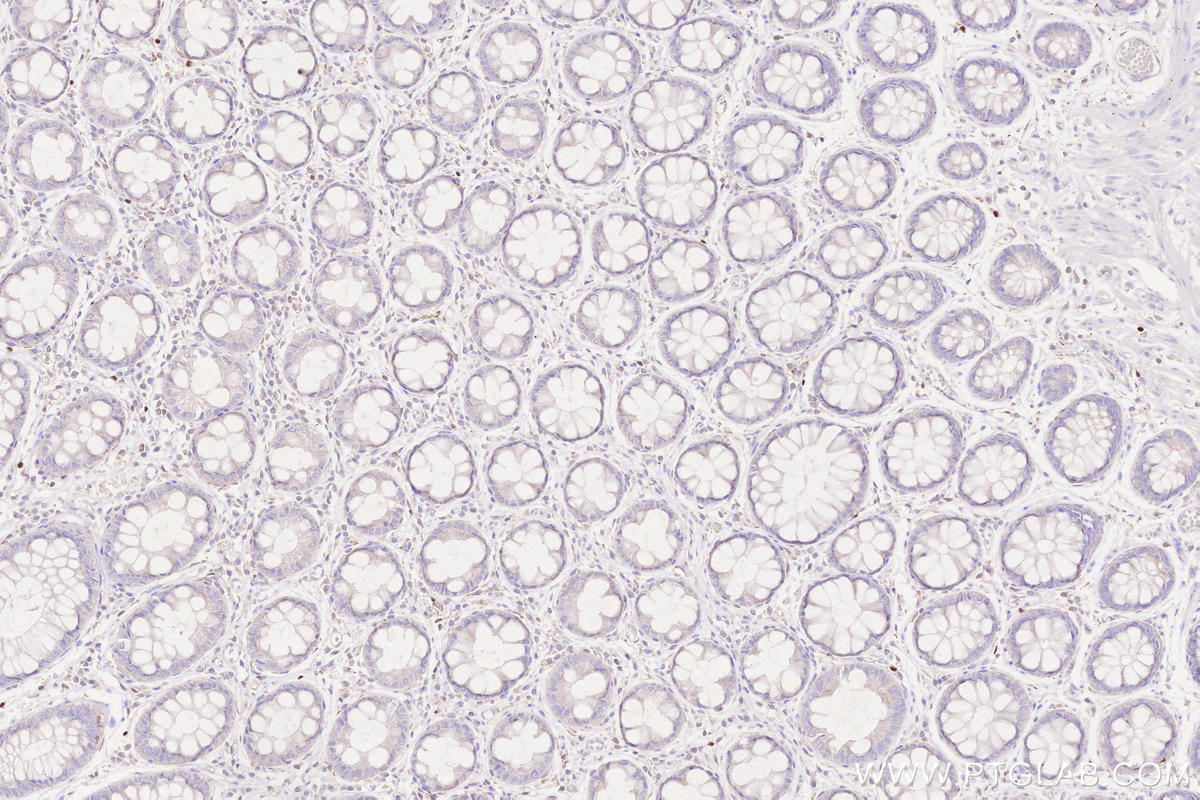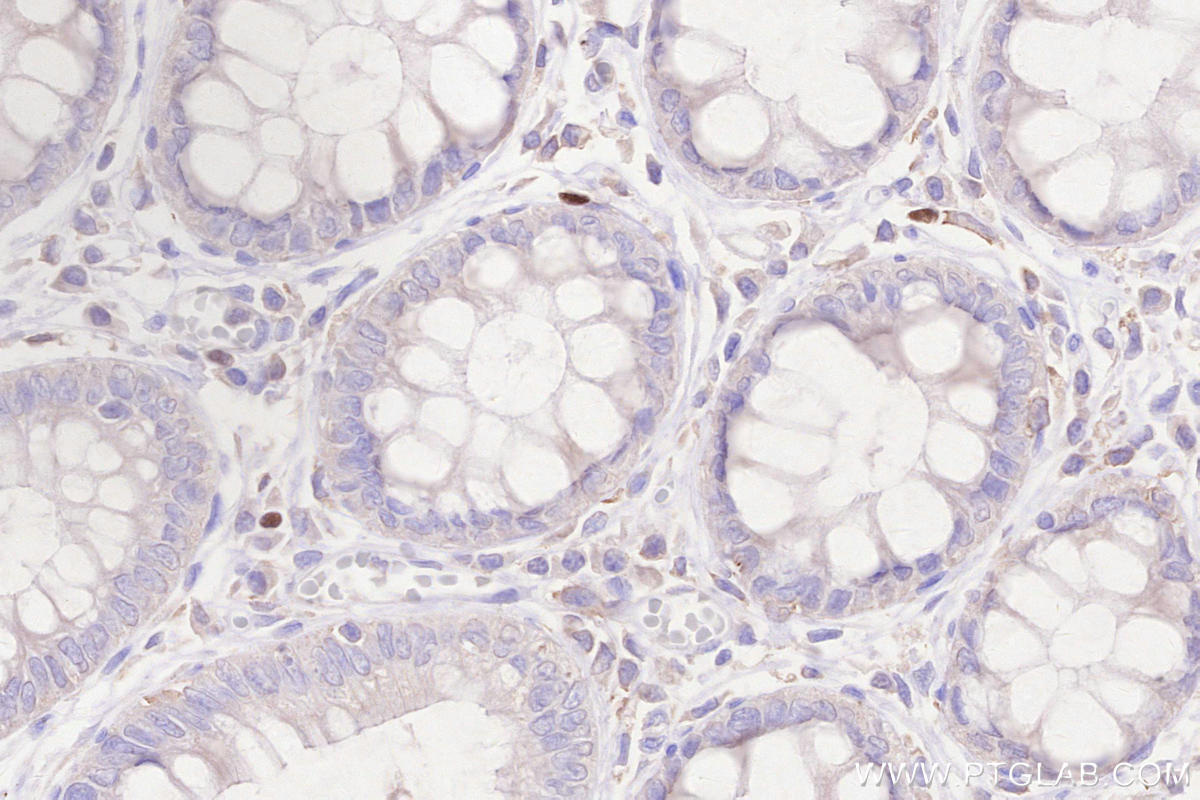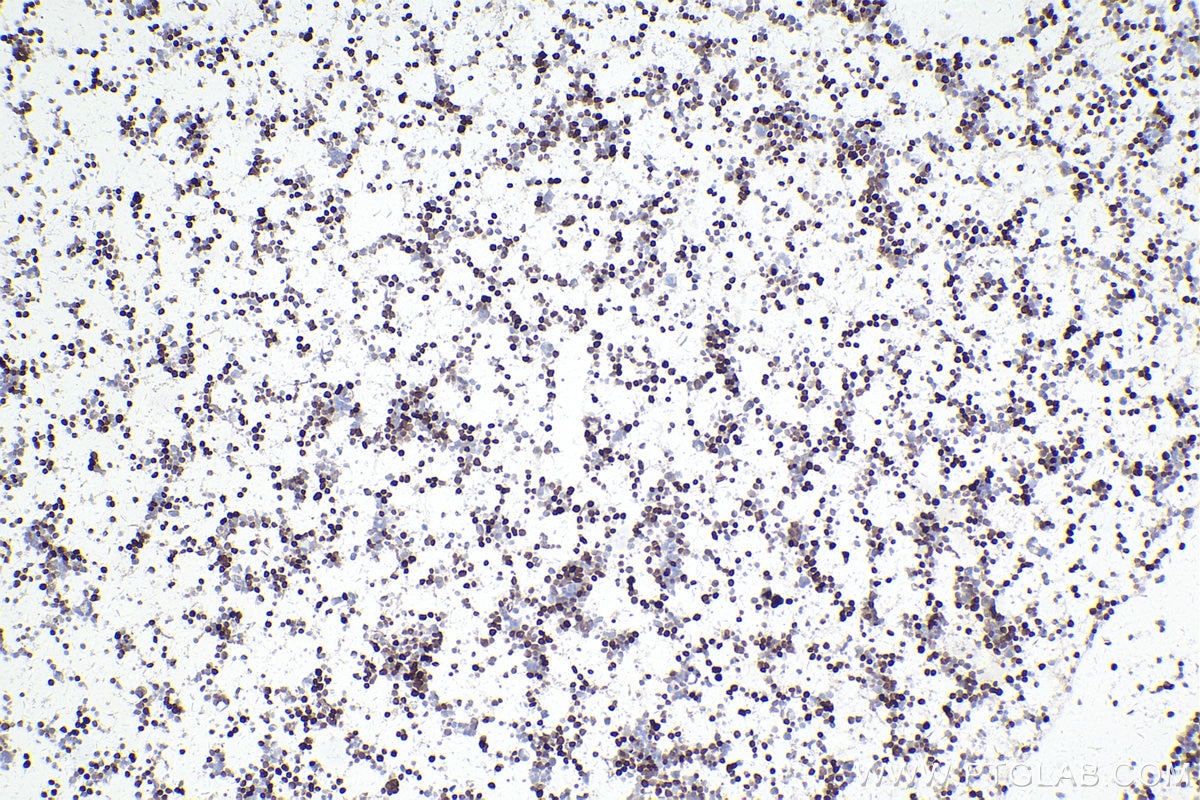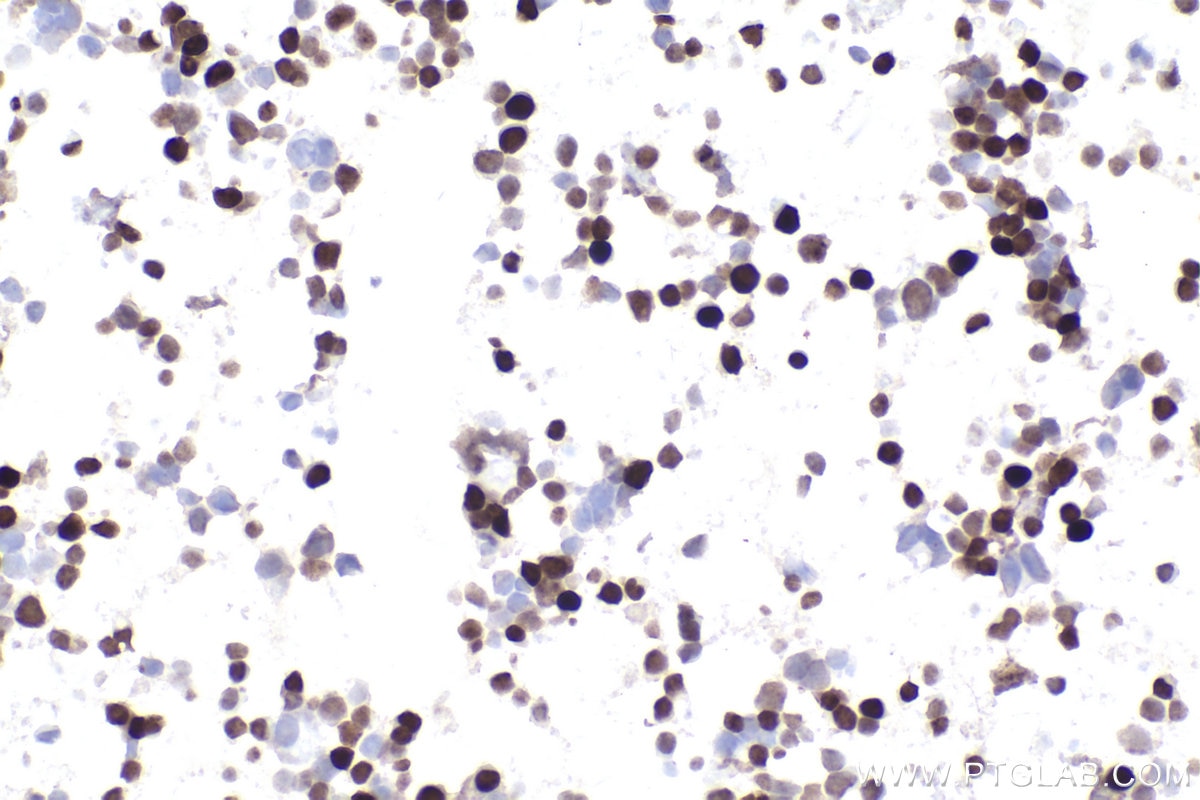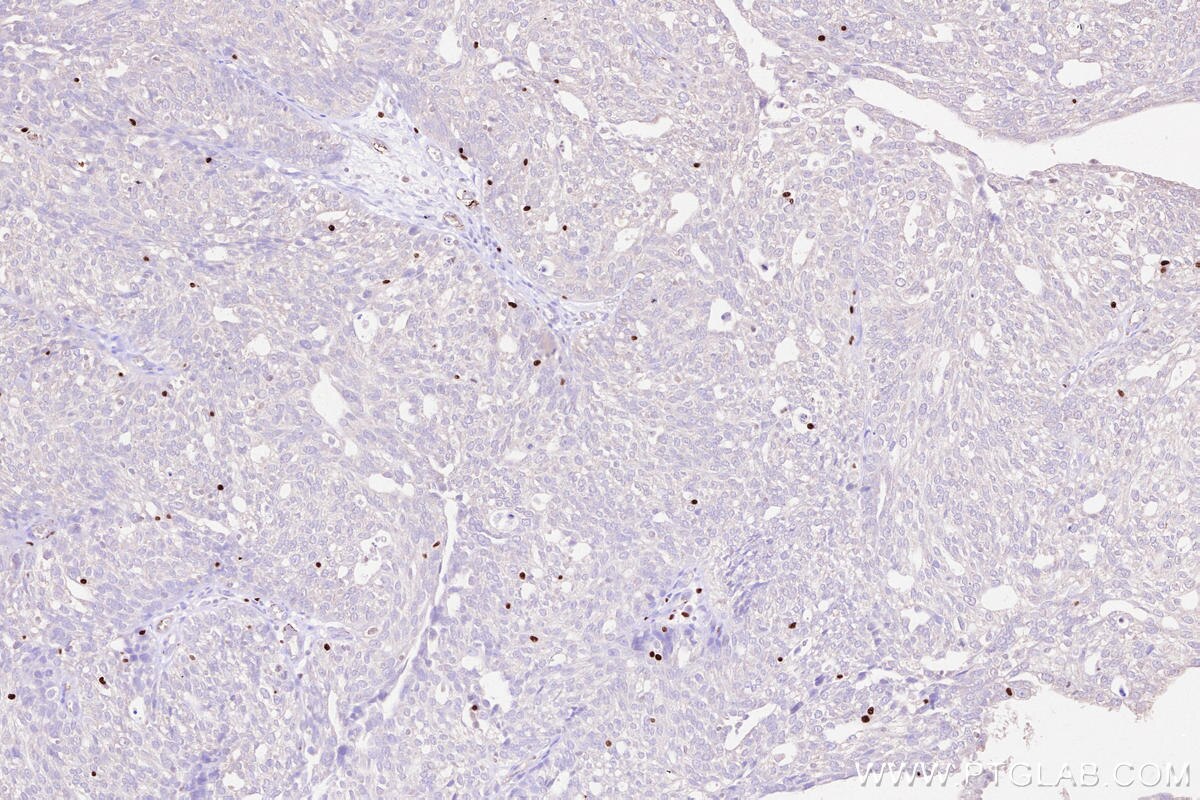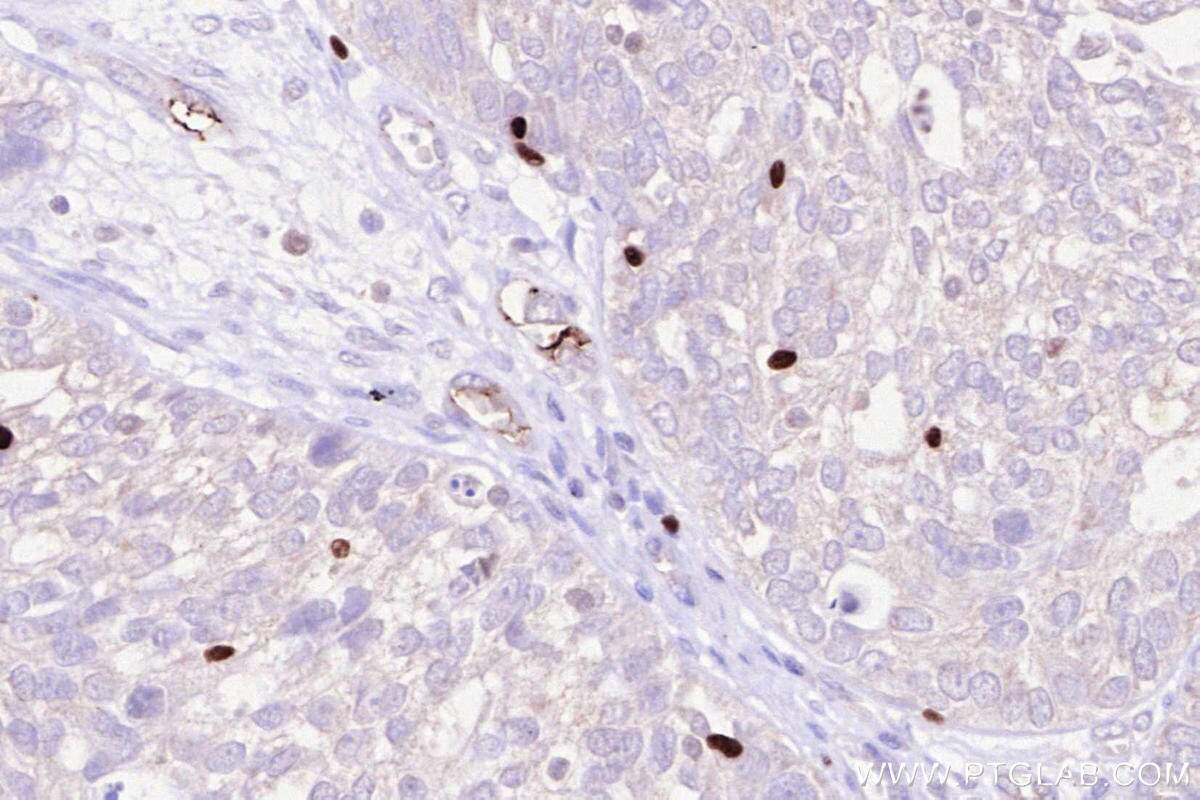Tested Applications
| Positive WB detected in | MJ cells |
| Positive IHC detected in | human tonsillitis tissue, human appendicitis tissue, human lymphoma tissue, human ovary cancer tissue, human rectal cancer tissue, MJ cells Note: suggested antigen retrieval with TE buffer pH 9.0; (*) Alternatively, antigen retrieval may be performed with citrate buffer pH 6.0 |
Recommended dilution
| Application | Dilution |
|---|---|
| Western Blot (WB) | WB : 1:5000-1:50000 |
| Immunohistochemistry (IHC) | IHC : 1:1000-1:4000 |
| It is recommended that this reagent should be titrated in each testing system to obtain optimal results. | |
| Sample-dependent, Check data in validation data gallery. | |
Product Information
68803-2-Ig targets FOXP3 in WB, IHC, ELISA applications and shows reactivity with human samples.
| Tested Reactivity | human |
| Host / Isotype | Mouse / IgG1 |
| Class | Monoclonal |
| Type | Antibody |
| Immunogen |
CatNo: Ag23089 Product name: Recombinant human FOXP3 protein Source: e coli.-derived, PET28a Tag: 6*His Domain: 107-196 aa of BC113401 Sequence: STVDAHARTPVLQVHPLESPAMISLTPPTTATGVFSLKARPGLPPGINVASLEWVSREPALLCTFPNPSAPRKDSTLSAVPQSSYPLLAN Predict reactive species |
| Full Name | forkhead box P3 |
| Calculated Molecular Weight | 431 aa, 47 kDa |
| Observed Molecular Weight | 47 kDa |
| GenBank Accession Number | BC113401 |
| Gene Symbol | FOXP3 |
| Gene ID (NCBI) | 50943 |
| Conjugate | Unconjugated |
| Form | Liquid |
| Purification Method | Protein G purification |
| UNIPROT ID | Q9BZS1 |
| Storage Buffer | PBS with 0.02% sodium azide and 50% glycerol, pH 7.3. |
| Storage Conditions | Store at -20°C. Stable for one year after shipment. Aliquoting is unnecessary for -20oC storage. 20ul sizes contain 0.1% BSA. |
Background Information
FOXP3 is a transcription factor belonging to the Forkhead box (FOX) protein family. It contains a forkhead-winged helix domain that acts as a transcriptional activator or repressor. FOXP3 is the master regulator of regulatory T cells (Tregs), a subset of CD4+ T cells with potent suppressive activity. It plays a critical role in maintaining self-tolerance and preventing autoimmune diseases by controlling the development and function of Tregs. The expression of FOXP3 is quite limited, and the cellular taxa present in the tissue are relatively low. Therefore, if you intend to perform Western blotting (WB), it is advisable to enrich the target cells prior to detection.
Protocols
| Product Specific Protocols | |
|---|---|
| IHC protocol for FOXP3 antibody 68803-2-Ig | Download protocol |
| WB protocol for FOXP3 antibody 68803-2-Ig | Download protocol |
| Standard Protocols | |
|---|---|
| Click here to view our Standard Protocols |

